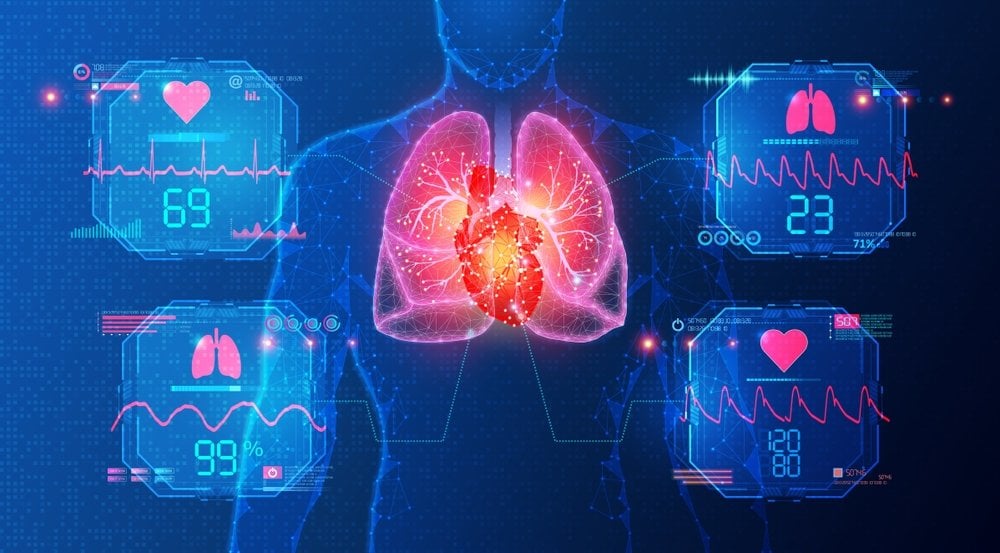Dr. David Agus, a USC medical school and engineering school leader, has been immersed in fighting the pandemic since January. At the Health+Wealth of America conference on Tuesday December 1, he showed enormous enthusiasm about all three of the new vaccines that are approaching approval. He told the audience that aside from their impressive efficacy against contracting Covid-19, they actually all appear to be 100% effective at keeping people from being so sick they would need hospitalization. He also, though, noted that supply chain problems could delay distribution. One idea he said should have been considered, had the U.S. had more effective national coordination, would be to ship vaccines in vials that can contain multiple doses—perhaps as many as 10, instead of the single dose that it currently the standard. There were way more insights, too.
The conference kicked off with an overview of American sentiment from The Harris Poll, and believe it or not, the news was mildly encouraging. People want the country to come together, despite what we may hear too often on the news. (View and download The Harris Poll presentation slides here.)

Here’s a bit about two more sessions. Wednesday will be another extraordinary line up, so come!
When we look at technology right now, there are many things to be worried about, but some of the biggest are misinformation, disinformation and data privacy, according to Maëlle Gavet, author of Trampled By Unicorns: Big Tech’s Empathy Problem and How to Fix It. “Because of this deficit of empathy at the core of the tech ecosystem, we are finding ourselves at a crossroads where the negative is starting to outweigh the positive. It doesn’t mean that the positive doesn’t exist,” Gavet explained. She continued: “As we’re getting into a more polarized world, I believe that the next Cold War is actually going to happen on the consumer internet.”
So how can we bring empathy to Big Tech? Will morality and ethics ever return to Silicon Valley? And can the industry do it on its own? Most likely, no, she told the conference audience. “I think, realistically, self-regulation has never worked for any industry, and so let’s not put the bar higher on the tech industry than on any others,” Gavet said. “There’s very smart people, but there’s no reason why they would be able to self-regulate more than other industries.” While Gavet believes that certain tech behemoths, such as Microsoft and Salesforce, are doing a better job at incorporating empathy into their companies than others, her faith lies in the future. “My hope is really in the next generation of entrepreneurs, like the ones who’re currently working on building the next Facebook, the next Google, etc.”
—————
Thirty years ago, Myriad Genetics isolated the BRCA1 and BRCA2 genes, which most commonly predispose someone to breast cancer and ovarian cancer. Since then, the company has been testing men and women with family histories of breast cancer. But today, it’s a whole new ball game in the field of genetics, explained Nicole Lambert, president of the company, during a session on genomics and human health. “I’ve seen the company rapidly evolve from just BRCA1 and BRCA2 testing to a panel of multiple cancer predisposition genes, prenatal genetic testing, other testing within the cancer space and even evolving into mental health and helping predict which patients will respond to different antidepressants. It’s been quite a journey and a really exciting one. it’s moved really fast [hitting] some benchmarks, and in other ways it’s hard to believe we found these genes 30 years ago, and [genetic testing] still isn’t exactly routinely offered or routinely accepted in the medical community.”

But we’re still very much in the early phases of understanding the genome, added Meredith Salisbury, a senior consultant for the life science communications firm Bioscribe and a regular Techonomy healthcare and genomics contributor, who appeared with Lambert. “Right now, we are, I think, doing as well as we can,” she said. “And that’s not as well as we would like.” For example, historical racial biases in the testing data is very much still a hurdle to overcome, since until recently almost all American research was conducted on white people. “But we’re getting there,” Salisbury continued. “We’ve made tremendous strides in understanding different genetic variation and how that relates to human health… but, right now, we are in the early phase, and there are growing pains.”
















